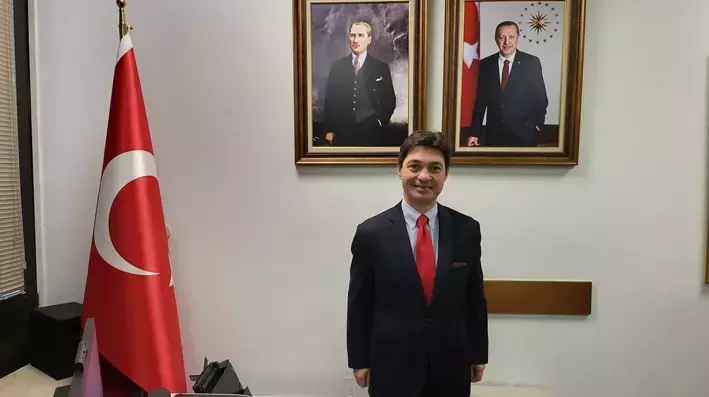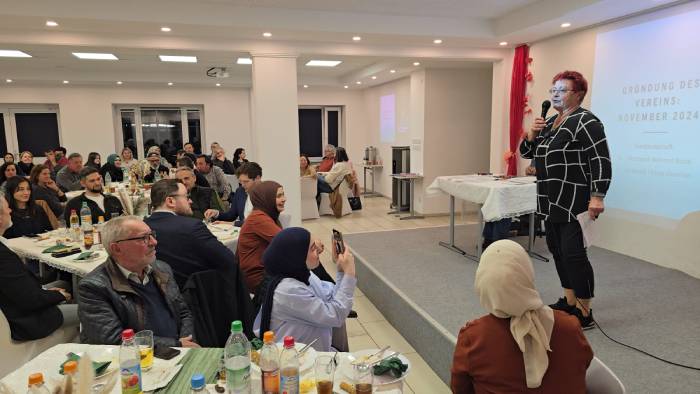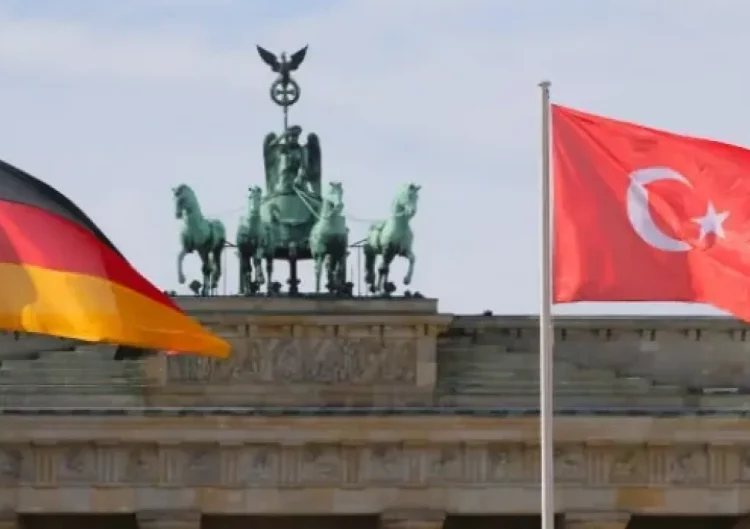Levent Kenez / Stockholm
A recent interfaith iftar dinner in Augsburg, Germany, organized by community-based groups associated with the Hizmet or Gülen movement, a group inspired by the late cleric Fethullah Gülen, has sparked friction between local German politicians and Turkish diplomatic representatives. The event has raised renewed concerns over the Turkish government’s alleged attempts to exert political pressure and conduct surveillance operations in Germany.
The event, held March 15 at the DIPA Association’s headquarters, was jointly hosted by Rumi Augsburg e.V. and the Frohsinn Educational Center, both community organizations with known affiliations to the Hizmet movement. The dinner brought together around 120 participants, including representatives from various religious communities, civic groups, educators and local government.
Among the guests were members of the Augsburg City Council, including Sieglinde Wisniewski, Benjamin Adam, Pia Hartinger and Florian Freund.
Councilwoman Wisniewski commended the active participation of women in the organizing associations and acknowledged her longstanding experience with the groups since 2000. Her colleague Benjamin Adam emphasized the role of the Frohsinn Educational Center in promoting coexistence, calling it a vital institution for the city’s multicultural landscape.

The event was soon overshadowed by a letter sent days later by the Turkish consul general in Munich, Süalp Erdoğan, to City council members Wisniewski and Freund. In the letter the consul general expressed regret over their participation in an event allegedly linked to the group the Turkish government refers to as the “Fethullahist Terrorist Organization,” or FETÖ. This label, coined by President Recep Tayyip Erdogan, has not been recognized by democratic nations that uphold the rule of law.
In his letter Consul General Erdogan warned that the presence of Gülen-affiliated groups in Germany could lead to “reactions, concerns and regret,” a statement that has since been interpreted by German officials as an attempt to interfere in domestic political discourse.
The response from the German side was swift and critical. Wisniewski said she was shocked by the letter and took the matter to the German Federal Intelligence Service (BND). She expressed concern that local politicians might be under surveillance by foreign governments. Freund acknowledged receiving the letter but downplayed its influence, saying he believed the Turkish reaction was triggered by the public speeches they had given at the iftar event.

German civil society figures also weighed in. Ercan Karakoyun, head of the Dialogue and Education Foundation, condemned the letter as an unacceptable foreign attempt to intimidate German politicians.
The diplomatic controversy comes in the broader context of longstanding tensions between Germany and Turkey over political surveillance and influence operations. Germany’s 2023 and 2024 domestic intelligence reports identified Turkey as a key actor involved in espionage activities in Germany.
According to the 2023 report by Hamburg’s State Office for the Protection of the Constitution (Landesamt für Verfassungsschutz Hamburg), the Turkish National Intelligence Organization (MIT), under the direction of İbrahim Kalın, had been active in gathering intelligence on Kurdish groups, left-wing organizations and opponents of the Turkish government, including the Gülen movement.
The report outlines how MIT utilizes its global network including contacts within Turkish diplomatic missions, to monitor dissidents. Turkish citizens living in Germany who remain loyal to Ankara have allegedly been recruited to spy on others in their community, including critics of Erdogan.
In one documented case, a Turkish man in Berlin voluntarily contacted Turkish authorities, claiming he had infiltrated the Gülen movement and was ready to provide intelligence. The information he supplied, according to documents acquired by Nordic Monitor, was sent to both the Turkish Embassy in Berlin and MIT headquarters.
Further raising alarms, the 2024 intelligence report points to efforts by Turkish diplomats Justice and Development Party (AKP) representatives to shape public opinion in Germany’s Turkish diaspora. During a 2023 speech in Neuss, former AKP MP Mustafa Açıkgöz called for denying Gülen supporters the right to live either in Turkey or abroad.
Additionally, Germany’s Federal Ministry of the Interior, in a comprehensive 380-page report published in 2023, named Turkey as the only NATO ally engaged in systematic intelligence operations against the German state. The report listed Turkey along with countries like Russia, Iran, China and North Korea, warning that such foreign interference threatens Germany’s democratic institutions and internal security.
This broader picture places the Augsburg event in a more alarming light. Turkish consulates have reportedly been compiling dossiers on critics, passing their personal information to Ankara. This practice has led to terrorism investigations in Turkey, often without credible evidence.
The report also highlights the far-right, nationalist Gray Wolf network (Bozkurtlar, also known as Ülkücüler), the youth organization of Erdogan ally the Nationalist Movement Party (MHP), underscoring the close collaboration between the Ülkücüler and the AKP in Germany. According to the report, Ülkücüler partners with AKP-affiliated figures from the Union of International Democrats (UID), an organization that functions as a foreign interest group on behalf of the Erdogan government abroad, and mosque communities represented by the Turkish-Islamic Union for Religious Affairs (DITIB) and the IGMG (Islamic Community Milli Görüş).












